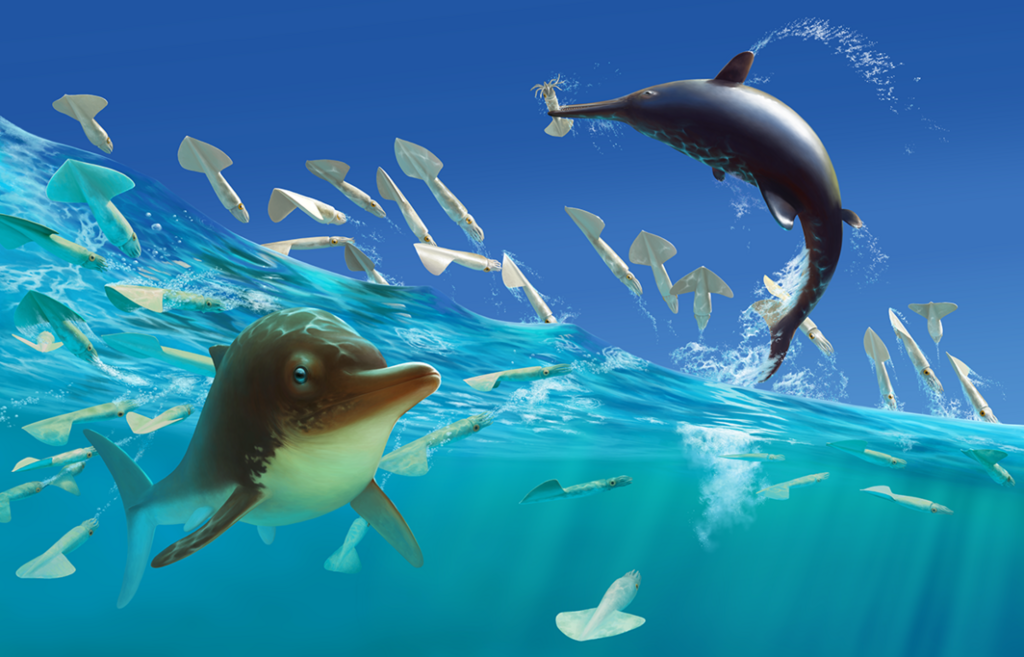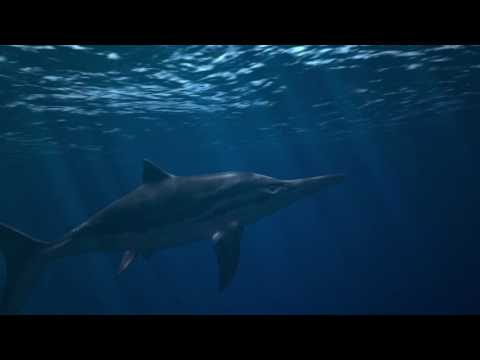A few years ago, a twelve-year-old girl found a strange fossil in the Blumenberg quarry near Eichstätt. An experienced collector recognised that it was a particularly large fossil and spent the night in the quarry to protect the find. At first, it was thought to be a crocodile. During preparation at the Jura-Museum it became clear that it was an ichthyosaur. These are extremely rare in the Solnhofen Platy Limestones. And this one is almost completely preserved!

§
© Andreas Hecker, Jura-Museum Eichstätt
Hunter in the Jurassic Sea
An unexpected discovery
The outstanding preservation becomes apparent under ultraviolet light: the bones appear blueish while the skin and other tissues glow beige.
A reptile in the shape of a fish
Ichthyosaurs were reptiles that were perfectly adapted to life in the water. Their front legs and tail were fin-shaped, their hind legs reduced. They breathed air and gave birth to live offspring. And they ate fish, squid, ammonites and belemnites.

§
© Frederik Spindler
Reconstruction of two ichthyosaurs hunting for belemnites.
Although they look similar to dolphins and whales at first glance, ichthyosaurs are not related to them. This is particularly obvious in their tail fins. Whales and dolphins have a horizontal tail fin, which they move up and down. The caudal fin of ichthyosaurs was vertical and they moved it to the left and right, as you will see in the following video. Their movement was similar to that of white sharks. They could dart through the water like torpedoes to catch their agile prey.
